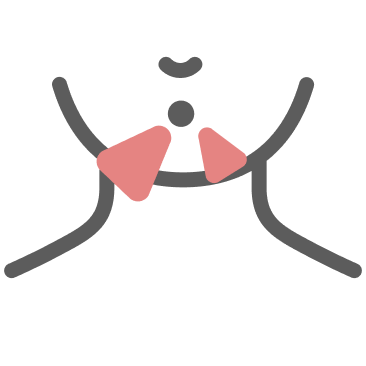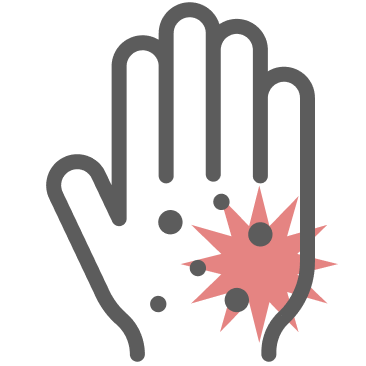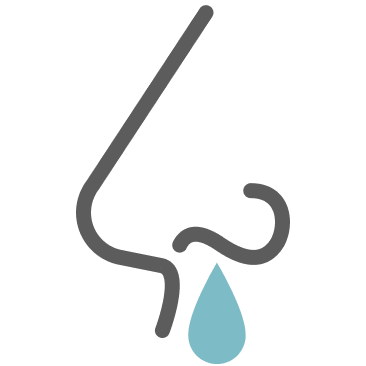What Does An Antihistamine Do?
Antihistamines help to block some of the adverse effects caused by the histamines our bodies produce, in response to an allergen entering our systems2.
They may be available with a prescription, or as an over-the-counter (OTC) medication.
Taking an antihistamine can help relieve a number of common allergy symptoms, including2:

Congestion

Coughing

Itchy or watery eyes*

Dry or red eyes

Itchy skin or hives

Skin rashes

Itching of the nose or throat*

A runny or blocked nose*

Sneezing*
Types of Antihistamines
Antihistamines can be divided into two major subtypes2:
H1 receptor antagonists or H1 blockers – these are typically used to treat symptoms of allergies, insect bites, hypersensitivity to other medication and hives
H2 receptor antagonists or H2 blockers – these are generally used to treat gastrointestinal conditions, including acid reflux, peptic ulcers, gastritis, motion sickness, heartburn, nausea, and vomiting.
Antihistamines for Allergies
When it comes to allergy treatments, you’ll most likely be taking an H1 antihistamine blocker2. ZYRTEC® products, for instance, contain cetirizine, which is an H1 blocker.
Other examples of H1 antihistamines for allergies include2:
Azelastine
Fexofenadine
Diphenhydramine
Loratadine
How Do Antihistamines Work?
When you come into contact with an allergen such as pollen, mold, animal dander or dust, your body produces a chemical called histamine. Antihistamines reduce the effects of histamine on our body by blocking the receptors in our brains that usually react to it2 3.
In a typical immune response, your body will produce histamine to help fight infection. The chemical causes your blood vessels to expand and your skin to swell to protect your body from what it views as ‘foreign’ substances3.
With an allergic response, however, this process is triggered by something harmless that your body mistakes for a threat.
How to Choose the Right Antihistamine for Your Needs
Choosing the best antihistamine for your allergies will depend on several different factors, including:
The symptoms you want to treat
Your preferred form of medication (e.g. tablets or nasal sprays)
Whether you want a non-drowsy formula
Remember, some antihistamines will take longer to enter your system than others. So, you’ll also need to consider how quickly you need relief when choosing your antihistamine.
To help you find the best antihistamine for you, we’ve created a comparison page where you can compare different antihistamine products and find one that works for you.
See which antihistamine is right for you.
References
https://www.mayoclinic.org/diseases-conditions/allergies/symptoms-causes/syc-20351497
https://my.clevelandclinic.org/health/drugs/21223-antihistamines
* Symptoms that are treated by ZYRTEC® or ZYRTEC-D®
Links to other parties’ articles and websites are provided for convenience only. Kenvue is not responsible for their content.

